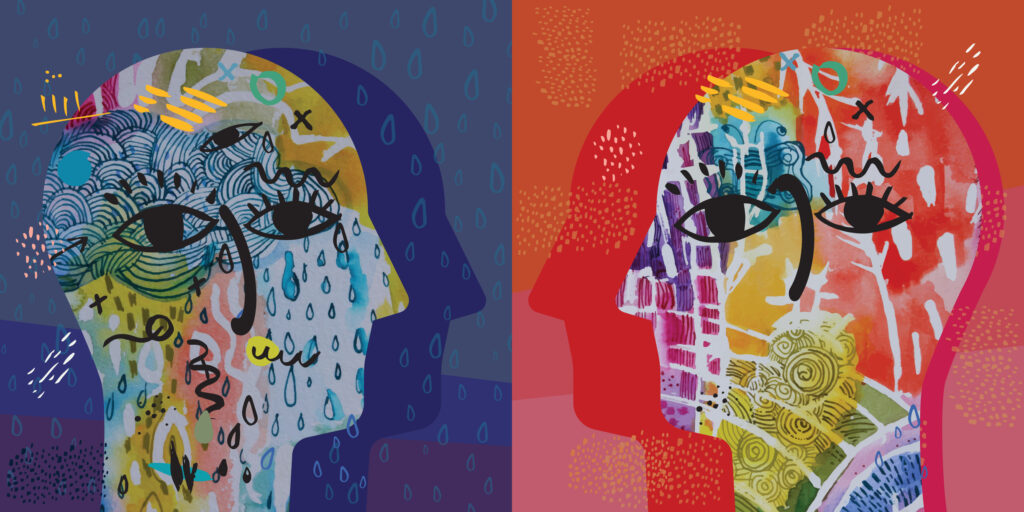In 19th Century America, people rushed in droves to California hoping to become rich from the plentiful resource lying previously unnoticed in rocks and rivers across the land.
Currently, another untapped resource is gaining recognition: the resource of difference.
The workplace is rife with differences: of opinions, values, cultures, priorities, tastes, assumptions, expectations, hopes.
These differences can bring many riches in the form of self-awareness, trust, respect, understanding, productivity, innovation, creativity, and deep, resilient relationships.
Reaping the benefits without the risks
But the mining of precious resources can also bring risks.
In the California Gold Rush, alongside the gains, there were also losses – lives lost or damaged, relationships soured or destroyed through rivalry and greed.
Without the right skills and intentions, differences of opinion and culture can lead to relationship breakdown and loss.
Not to mention financial and business costs associated with workplace conflict, from time consuming formal processes and legal fees, to reduced productivity for the individuals involved and the wider team.
Why is difference such a precious resource, and what can business leaders do to mine this resource for the good?
Without the right skills and intentions, differences of opinion and culture can lead to relationship breakdown and loss
A resource with a difference
Every conversation involves differences, whether that conversation is between first-time acquaintances or old friends, colleagues or married couples, people of identical ethnicity or diverse.
No two people have the same outlook, experiences or priorities. In fact, no one person has the same outlook, experiences and priorities over time.
Not only is difference a plentiful resource, it is a valuable one.
When two people have a conversation, the differences between them can reveal new ideas, fresh perspectives, recognition of unconscious bias, expanded world-views, learning, more understanding, newfound respect and tolerance.
These are rewards that would have been hard to reach without personal differences.
Fear of the unknown
But difference can also be seen negatively.
If your opinion seems to threaten something I value, I might easily say or do something to hurt you, leading to another round of threat and hurt which can snowball into the kind of entrenched and bitter dispute every HR professional dreads.
And it’s not only HR who will suffer. The greatest suffering is likely to fall on the parties themselves, and the people closest to them both at work and at home.
When two people have a conversation, the differences between them can reveal new ideas, fresh perspectives, recognition of unconscious bias, expanded world-views, learning, more understanding, newfound respect and tolerance
Making the most of difference
So what can you do, as a business leader, to ensure that the resource of difference yields the greatest reward?
How can you help to shift the culture of your organisation so that differences and conflict become an opportunity, and not a cost?
Providing informal services, such as mediation or facilitated conversations – which offer employees a way to communicate in times of conflict – is a positive first step.
If parties are willing to meet and talk to one another directly, with or without the support of a trained, neutral third party, they have the chance to discover new perspectives that can generate trust and understanding, and develop new skills for handling difference in the future.
But supported conflict management services only address the tip of the iceberg. This tip is the visible conflict – the few cases where difference has already turned problematic.
Under the surface lie all the conversations and interactions across the organisation that have the potential to yield either growth and understanding, or suffering and separation.
This is where the greatest potential for culture change lies. And it involves the many, not the few.
Working together to drive change
Culture change will only happen when the workforce as a whole has the mindset and skills to explore differences for the good.
And one of the ways to achieve this is through training. Conflict management skills training teaches listening skills, encourages the exploration of different viewpoints, and challenges assumptions we make about others.
These core skills will not only help staff deal with conflict around difference, but also help equip them with the skills and mindset to embrace difference as an opportunity.
If parties are willing to meet and talk to one another directly, with or without the support of a trained, neutral third party, they have the chance to discover new perspectives that can generate trust and understanding, and develop new skills for handling difference in the future
What’s the big rush?
The potential that difference brings for both good and bad is not new. But it is becoming more urgent that we minimise the bad and maximise the good.
The range and degree of difference in the workplace is increasing. Organisations are actively promoting diversity in their workforce and welcoming people who look, think, speak and behave differently.
There have always been differences, but these differences are becoming more obvious and more necessary. As a result, the stakes are rising.
Related to this growth in diversity is an increasing tendency towards polarisation. Various political, social and economic developments have exposed extreme differences of opinion on matters ranging from national identity to personal freedom.
These differences can also be felt in the workplace, and the depth of sentiment, exacerbated by the sheer number of people coalescing around each pole, is making the need for action more urgent.
Social media is another factor exacerbating the problem. Platforms such as Facebook and Twitter can reinforce prejudice and assumptions and intimidate us into conforming to widely-held views.
This is especially true now that algorithms can be used to purposefully whip up sentiment in one direction or another.
Meanwhile, the need for the positive outcomes of difference is also intensifying.
The advance of AI is highlighting ever more the need for human beings to build soft skills which are at less risk of being mastered by robots
A matter of survival
Organisations need more innovation and creativity in order to survive.
As more business communication goes online, the importance of strong, trusting relationships is becoming more keenly felt.
The advance of AI is highlighting ever more the need for human beings to build soft skills which are at less risk of being mastered by robots.
Everyone can benefit from the richness that difference brings, and HR has a key role to play in enabling this to happen.
Not only are HR leaders in a position to ensure support services and training are in place, but they also have a personal opportunity.
The opportunity to influence by role-modelling the skills and behaviours that embrace difference, encourage different opinions and voices, and challenge behaviours that consciously or unconsciously restrain difference as many of our best HR leaders do today.
If you enjoyed this, read: How introverts and extraverts manage conflict differently
[cm_form form_id=’cm_65a14c3f5da64′]






